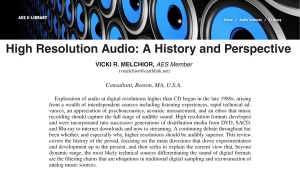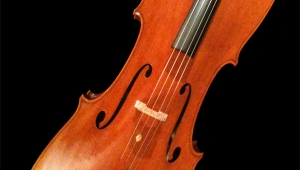| Columns Retired Columns & Blogs |
High-End Democracy
It's useful to ponder the wonders of democracy in this election year—not because of elections, but despite them. Were you to judge democracy by this election year, you might conclude that it consists of judging who has the best PR people, who the best pollsters, and who can muster the nastiest, most effective "negatives" about the other guy.
My two years in Nigeria, working as a mechanic in a relief program during the Biafran conflict, provided me with perhaps the best working example of democracy in action. Nigeria was scarcely a democracy at the time, as it was more or less benevolently dictated to by General Gowon, as was Biafra by General Ojukwu—both highly successful graduates of the UK's Sandhurst Military Academy. Nigeria, particularly in the south, was nevertheless intensely democratic. Democracy does not rest on the right to vote. It rests on widespread distribution of power, only one of the means of which is voting. There are many others.
In southern Nigeria, land ownership was almost universal, and very spread out. As a result, power was widely distributed; the villages where I lived were effective democracies. Though invariably headed up by a chief, his powers and rights were circumscribed by the general power held by everyone. In northern Nigeria's more feudal system, most land was owned by the local emir. Democracy thrived to a much lesser degree in the north, though the right to vote (both before Gowon's military rule and after) began to change things somewhat.
One of Stereophile's fondest dreams is of a democratic hi-fi world in which small manufacturers with short track records are as likely to have their excellent products recognized as larger, more established manufacturers. This isn't always easy. To begin with, larger manufacturers have more experience with maintaining effective press relations, and more money to send their products here and there. They also are better able to absorb the effects of a negative review—JA is fond of pointing out that a review in Stereophile is the last thing a startup manufacturer should want if the product isn't up to snuff.
It's one of Stereophile's roles, though, to treat all these products alike, based only on their meeting our minimum distribution requirements (five US dealers) and inspiring at least some interest from our writers. (With so much product out there to review, we do exercise discretion in choosing not to review products when we can readily see in advance that they're not very good.) Even though this doesn't actually distribute power, it allows for distribution of power to occur.
Our "Letters" pages have the same ideal. Every letter we're sent is judged on its literary and intellectual merits, not by the name of its author. To my mind, "Letters" forms an excellent complement to the already wide-ranging nature of Stereophile's editorial messages; the letter-writers who disagree with us are at least as valuable as those who agree. Because of this we've been accused of lacking direction, but I see it in another light: through diversity direction, and truth, emerge.
I hope you get some of this diversity from our latest Test CD. Although music's greatest, most inspiring element is beauty (in my opinion, at least), music's unstoppable variety is incredibly important. Two days ago I was choosing some music to accompany Easter dinner, and I had the following to select from just strewn across my CD table: The Incredible Chess CD (Chess GIFT 2), Così fan tutte (EMI CDHC 69635), Marvin Gaye's Greatest Hits (Motown MCD09005MD), Shostakovitch's Piano Quintet and Quartets (EMI CDC 7 47507 2), Beethoven's five Cello Sonatas (Du Pré/Barenboim, EMI CMS 7 63015 2—get it if you can), Archie Edwards' Blues 'N Bones (Mapleshade 512695 Y), Debussy Preludes (Gieseking, EMI CDH 7610042), and Corey Greenberg's "Eden" (Test CD 2, Stereophile STPH004-2).
That was just what J. Gordon Holt used to refer to as the Top of the Pile (another term for recommended recordings—which all of these are). We are splendidly fortunate to have this unbelievable wealth of musical material available to us. In spite of the recording mega-conglomerates, the democracy of music thrives.
- Log in or register to post comments




































